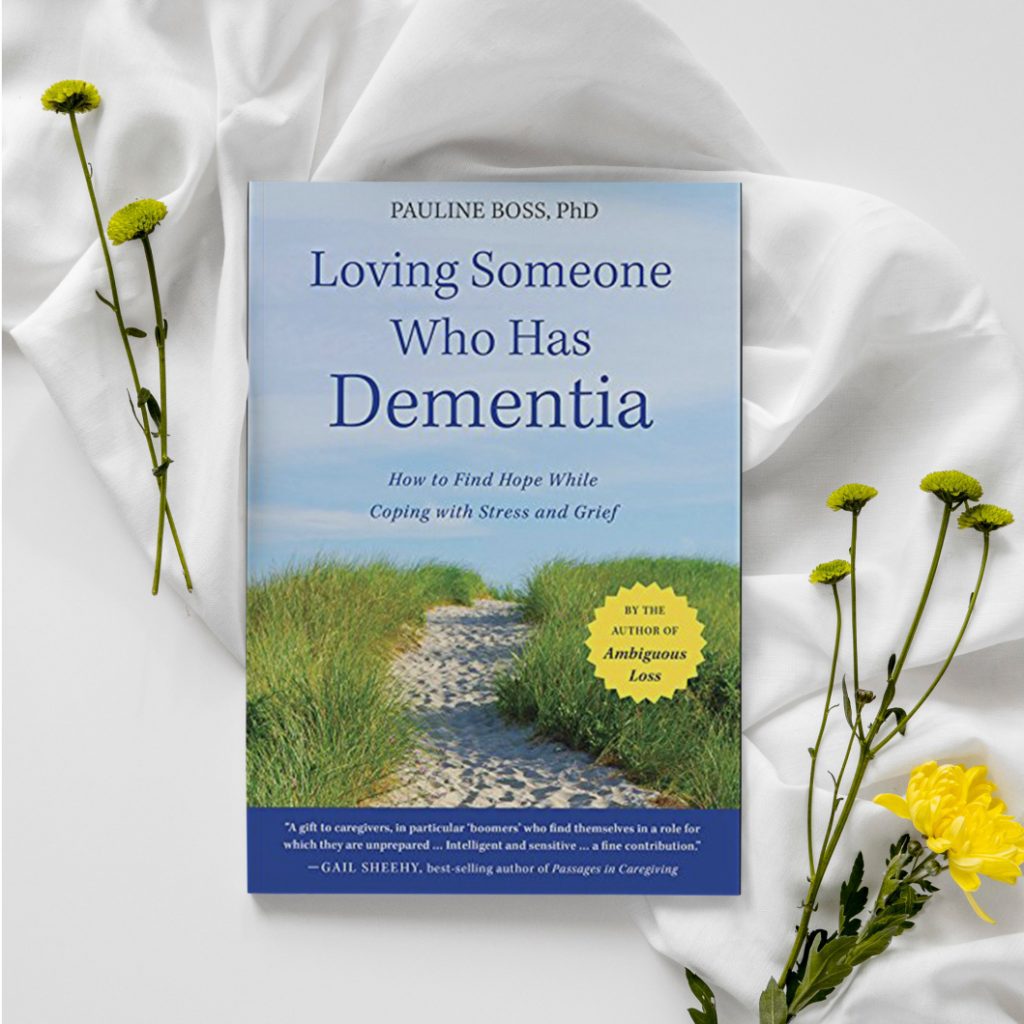Manage Difficult Feelings
Why is managing difficult feelings important?
Caregivers can sometimes experience feelings that are difficult to talk about with other people. Feelings such as sadness, loneliness, anger, guilt, hopelessness, and feeling overwhelmed are normal feelings. Unfortunately, in society these topics can be taboo to discuss or feel selfish. When a caregiver holds back these feelings other consequences can bubble up such as physical illness, serious mental health concerns, lashing out at family members and friends, and further isolating oneself. In the extreme, these feelings can lead to self-harm or harm of the person needing care.

In Dr. Pauline Boss’ book, Loving Someone Who Has Dementia: How to Find Hope while Coping with Stress and Grief, and the 10-week discussion series Finding Meaning and Hope, caregivers learn about ambiguous loss when caring for a person with dementia. Knowing about ambiguous loss helps explain the feelings one has when caring for a person who is physically present, but in some ways absent at the same time. Caregivers must learn to live with these two opposing views and obtain skills to cope with the feelings that result.
As one caregiver told me, “When I am at my wits’ end, I go out into the garage, get into the car, make sure the windows are up – and scream.” This was her way of calming herself without frightening her husband. She understood herself well enough to know when she needed to release some tension – and found a functional way to do it.
– Dr. Pauline Boss in Loving Someone Who Has Dementia: How to Find Hope while Coping with Stress and Grief

Remember, there are positive moments in caregiving too.
Hear from a caregiver sharing their insight about the rewards of caregiving from Finding Meaning and Hope Discussion Series.
There are many ways to address difficult feelings. You can share your feelings of sadness, grief, and guilt with other people who are in your shoes. Joining a support group can help. Support groups can be in-person or online. It’s a safe space where families of people with dementia get together to support each other, find useful resources and get some advice for solving problems.
When you are feeling overwhelmed, you may need a break from your caregiving duties. This might be a 20 minute walk to clear your head or a regular time every week where someone else provides care. Think about asking a family member or friend to visit with your loved one on a regular schedule so you can attend to other matters. You might also utilize formal services such as respite where a paid service such as home care, adult day or a temporary residential care stay will give you the space you need to not feel so overwhelmed. Many states offer financial support to help with respite. Use the Eldercare Locator for more information on respite services in your area. Learn more about the types of services and organizations you may need in Aging and Dementia Services.
It’s okay to ask for help.
The information on this page was developed by Nicole Batsch, Ph.D. and is for educational purposes.
For individualized medical guidance, consult your physician.
